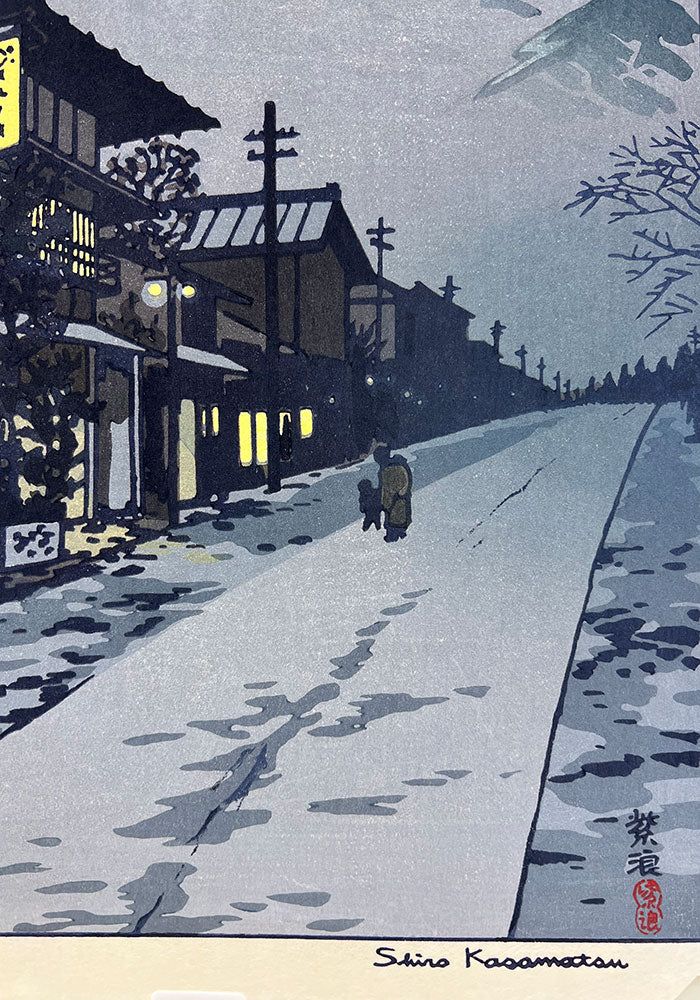The story almost always begins the same way. It starts with a fascination, a pull towards a land that seems to exist on a different plane of existence. For some, it’s the hypnotic neon glow of Tokyo, a vision of the future plucked from a sci-fi film. For others, it’s the serene beauty of a Kyoto garden, the stoic grace of ancient temples, or the quiet dignity of a traditional tea ceremony. It’s the thrill of world-class powder snow in Hokkaido, the electric energy of pop culture exploding from Harajuku, the promise of the world’s best food, and the comfort of unparalleled public safety.
For decades, Japan has been a magnetic destination for a certain type of foreigner—the adventurer, the artist, the teacher, the tech professional, the seeker. They arrive with suitcases full of ambition and hearts full of a carefully curated image of Japan. They come to teach English, to code for a gaming giant, to master a traditional craft, or simply to immerse themselves in a culture that feels like the antithesis of their own.
For a time, the dream holds. The “honeymoon phase” in Japan is intoxicating. The convenience is breathtaking—trains that arrive to the second, vending machines that dispense hot coffee, and convenience stores that are miniature marvels of culinary delight. The politeness is disarming. The society functions with a beautiful, intricate precision.
But then, quietly, a different story begins to unfold. It’s a story told not in arrival lounges, but in departure halls. It’s a slow-building narrative of disillusionment, exhaustion, and resignation. Despite the Japanese government’s active campaign to attract highly skilled foreign talent to combat its demographic crisis, a growing number of long-term foreign residents are making the difficult decision to leave. This quiet exodus, this “Sayonara Syndrome,” isn’t born from a single dramatic event, but from the cumulative weight of a thousand small cuts. It’s the story of why the dream, for so many, eventually fades to grey.
Part 1: The Glass Ceiling and the Gilded Cage – The Professional Disconnect

For many foreigners, the primary reason for being in Japan is work. And it is here, in the world of Japanese corporate culture, that the first and most significant cracks in the dream appear.
The Unbreakable Work Culture
The Japanese work ethic is legendary, but living it is another matter entirely. The culture is built on concepts that are often alien and draining for outsiders. There’s the expectation of unpaid overtime (zangyo), not necessarily for productivity, but as a show of loyalty. There is nomikai—after-work drinking sessions with colleagues and bosses that are not truly optional, where professional hierarchies are rigidly maintained. There is the concept of nemawashi, the informal, behind-the-scenes consensus-building that must happen before any decision is formally made in a meeting, rendering the meeting itself a mere formality.
For a foreigner accustomed to a more direct, results-oriented workplace, this can be maddening. The emphasis is often on process over outcome, on presence over productivity. The phenomenon of “presenteeism”—staying late at the office simply because the boss is still there—is a soul-crushing reality. While a Japanese colleague may have grown up understanding these unspoken rules, the foreign employee often feels like they are performing in a play for which they were never given the script. This leads to burnout, a sense of professional stagnation, and the feeling of being trapped in a gilded cage—well-paid, perhaps, but professionally unfulfilled.
The Perpetual Outsider: “You Are a Guest Here”
Perhaps the most profound professional barrier is the concept of the gaijin (outsider). No matter how long a foreigner lives in Japan, how fluently they speak the language, or how deeply they understand the culture, they are almost always seen as a guest. This isn’t necessarily malicious, but it is deeply ingrained.
In the workplace, this translates into a tangible “glass ceiling.” Foreigners may be hired for their specific international skills, but they are often kept on a separate track, away from the core management pipeline reserved for Japanese nationals. Promotions can be slow or non-existent. True integration into the decision-making heart of the company remains elusive. The feeling is one of being perpetually on the outside looking in, a valuable asset but never a true member of the family. This systemic othering prevents the deep sense of belonging and career progression that is a fundamental human need.
The Economic Calculus Has Changed
For years, the frustrations of the workplace were offset by good salaries and the high quality of life they afforded. That equation has been radically altered. Japan has been stuck in a cycle of wage stagnation for nearly three decades. Meanwhile, salaries in North America, Europe, and Australia have steadily climbed, particularly in high-demand fields like tech and finance.
The killer blow has been the precipitous fall of the Japanese Yen. A salary that seemed excellent five years ago is now significantly less valuable when converted back to dollars, euros, or pounds. For foreigners sending money home, saving for a future outside Japan, or simply comparing their earning potential globally, the math no longer adds up. Why endure the rigidities of Japanese corporate life for a salary that is no longer competitive on the world stage? The economic incentive that once papered over the cultural frustrations has worn dangerously thin.
Part 2: The Social Wall – The Ache of Isolation

If the professional world is challenging, the social world can be even more so. The very politeness and harmony that make Japan so appealing on the surface can also form an invisible, impenetrable wall that prevents deep, authentic connection.
The Honne/Tatemae Divide
At the heart of Japanese social interaction lies the distinction between honne (one’s true feelings) and tatemae (the public facade). Tatemae is the polite, agreeable face shown to society to maintain harmony. While a crucial social lubricant, for a foreigner seeking genuine friendship, it can be a source of immense frustration.
Conversations can feel superficial. Invitations may be offered out of politeness with no real intention of following through. It can be incredibly difficult to know what someone is truly thinking or feeling. This leads to a sense of loneliness that is particularly acute in Japan—one can be surrounded by 13 million people in Tokyo and still feel utterly alone. The deep, vulnerable, and sometimes messy connections that form the bedrock of Western friendships are much harder to cultivate. Friendships often remain pleasant but shallow, leaving foreigners with a network of friendly acquaintances but a deficit of true confidants.
The Insularity of Social Circles
Japanese society is largely organized around tight-knit groups formed in school, university, or the workplace. These circles are often closed and can be very difficult for an outsider—especially a foreign one—to penetrate. While people are almost always kind and welcoming on a surface level, being invited into the inner sanctum of a social group is rare.
This leaves many foreigners in a “gaijin bubble,” where their social life consists almost exclusively of other expatriates. While this provides a support network, it also defeats the purpose of immersing oneself in Japanese culture. After years of trying to bridge this gap, many simply give up, resigning themselves to a life lived parallel to, but never fully integrated within, Japanese society.
Dating, Marriage, and Family

For those looking to build a life in Japan, the challenges extend to romantic relationships. Cultural differences in communication styles, expectations of partners, and the role of family can create significant hurdles. The indirect communication style that pervades society can be particularly difficult in the context of an intimate relationship.
Furthermore, for those who do form families, a new set of anxieties emerges. The Japanese education system, with its intense pressure, focus on rote memorization, and notorious issues with bullying (ijime), is a major concern for many foreign parents. They worry about raising “third culture kids” who may not fully belong in Japan nor in their parents’ home country. The pull to return home to be closer to aging parents and to provide children with a more familiar cultural and educational upbringing becomes increasingly strong as the years go by.
Part 3: The Friction of Daily Life – Death by a Thousand Paper Cuts
Beyond the major professional and social challenges, it is the constant, low-grade friction of everyday bureaucracy and systemic hurdles that wears people down over time. It’s a death by a thousand paper cuts.
The Analogue Nation in a Digital World
For a country known for its futuristic technology, Japan’s administrative systems can be bafflingly archaic. The reliance on paper forms, in-person visits to ward offices, and the use of personal seals (hanko) instead of digital signatures can turn simple tasks into multi-day ordeals.
Opening a bank account, signing a lease, or even getting a mobile phone contract can be a bureaucratic nightmare. This “foreigner tax”—the extra layer of difficulty applied to almost every administrative task—is a constant reminder of one’s outsider status. In an age where most of the world has moved online, Japan’s insistence on a fax-and-paper-based system feels like a deliberate obstacle course.
Systemic Distrust: Renting, Credit, and Loans
Nowhere is the systemic distrust of foreigners more evident than in trying to secure housing or credit. Many landlords outright refuse to rent to foreigners, fearing communication issues or the possibility of them skipping out on the lease. Securing an apartment often requires a Japanese guarantor and heaps of non-refundable “key money” and “gift money.”
Similarly, getting a credit card or a business loan can be significantly harder for a foreigner than for a Japanese citizen, even with a stable, high-paying job. This constant need to prove one’s worthiness and reliability, to fight against a baseline assumption of being a flight risk, is both humiliating and exhausting.
Conclusion: The End of the Chapter
The decision to leave Japan is rarely made lightly. It is often accompanied by a profound sense of sadness and a feeling of personal failure. Foreigners don’t leave because they hate Japan. In fact, most who leave retain a deep and abiding love for the country, its people, and its culture.
They leave because the calculus has changed. They leave because the professional ceiling feels too low, the social wall feels too high, and the daily friction is too abrasive. They leave because the economic advantages have evaporated. They leave because the initial fascination has been worn down by the reality of being a perpetual guest in a land they wanted to call home.
The Japanese government is aware of its demographic cliff and understands, on a theoretical level, that it needs foreign talent. It has created new visa pathways and promotional campaigns to attract the world’s best and brightest. But there is a fundamental disconnect. Japan wants foreign workers, but it has not yet created a society where foreign residents can truly thrive. It is rolling out a welcome mat that leads to a door with three locks and a rulebook written in invisible ink.

